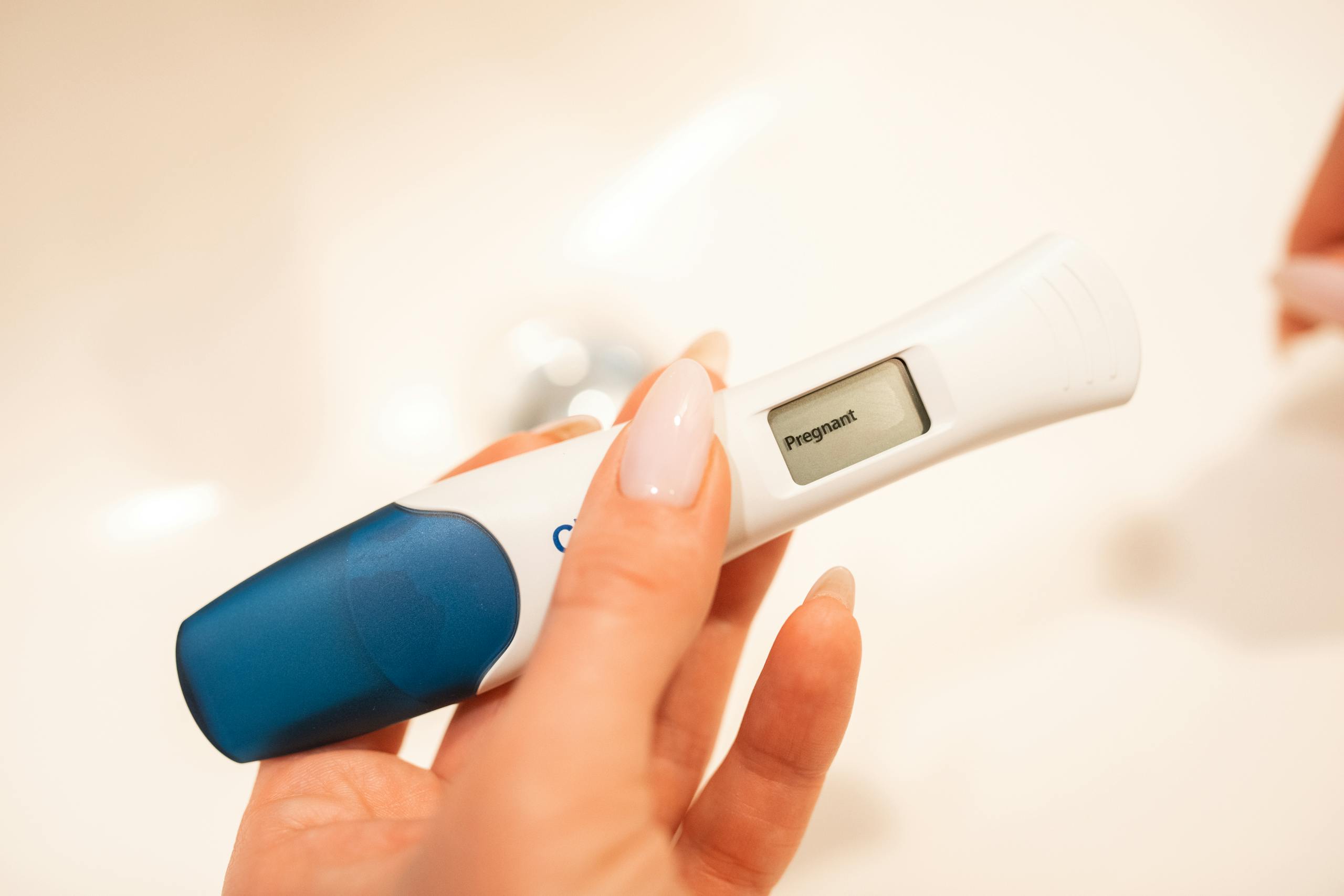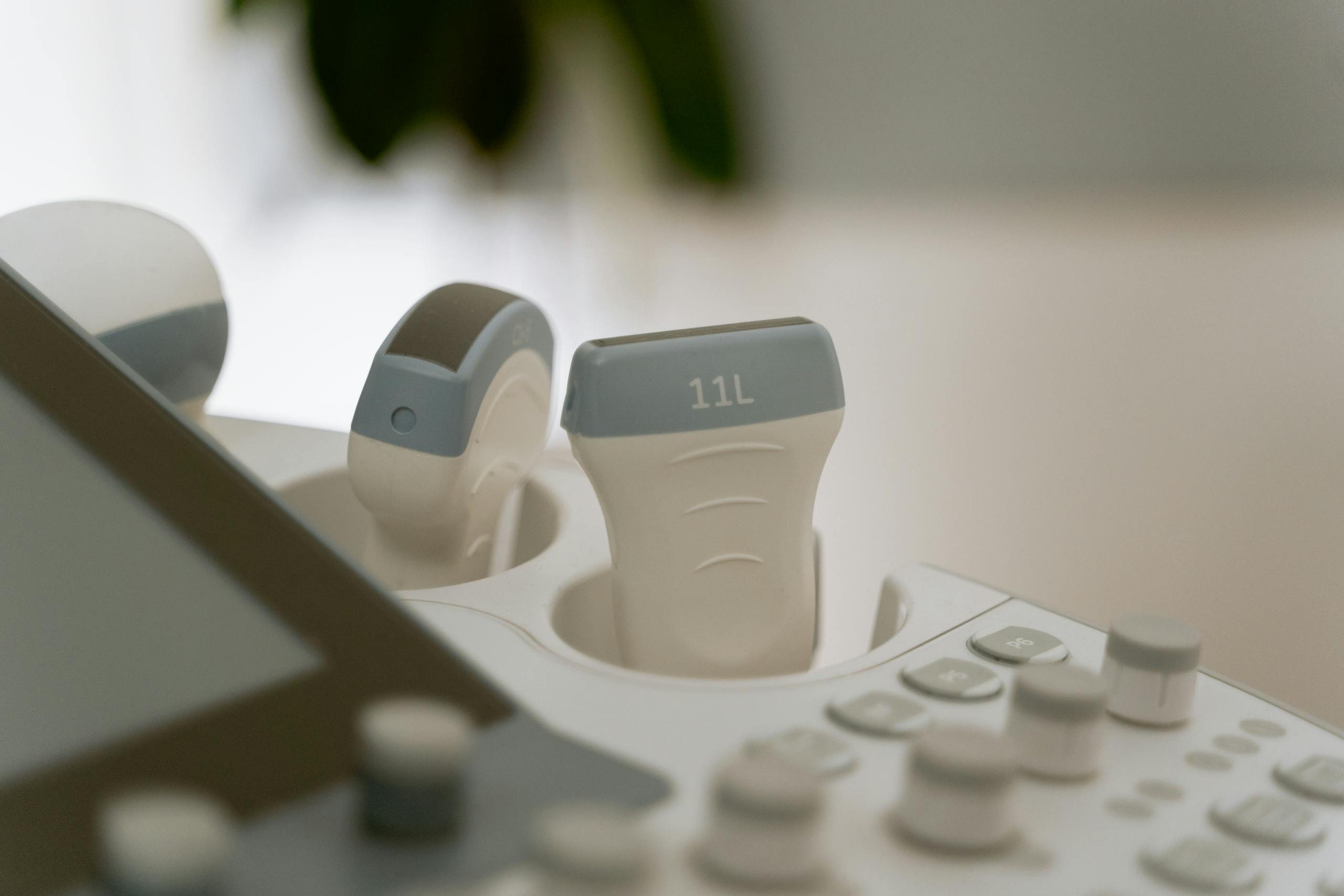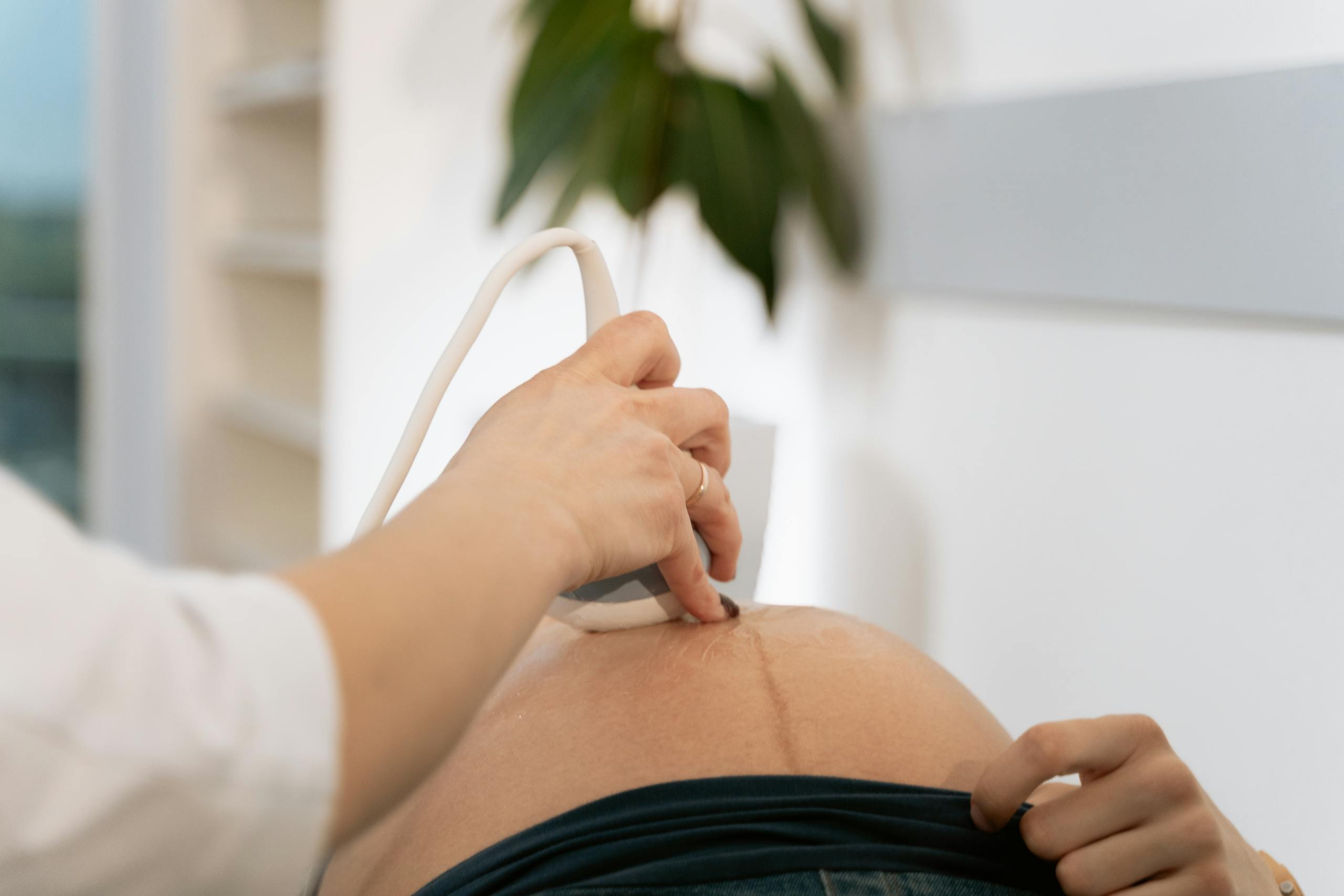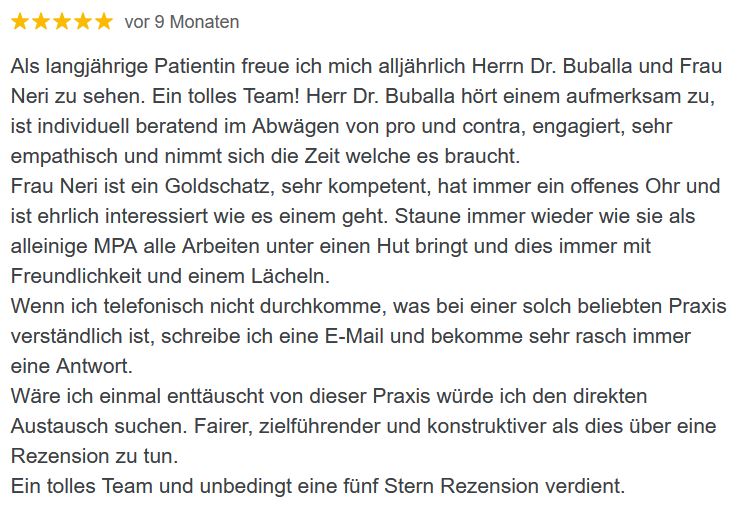Pregnancy - support right from the start
What you should know now - medically sound and sensitively explained.
Whether you are newly pregnant or already in the middle of your second trimester - this page will help you to feel safe and well supported. Here you will find medical information, practical tips and answers to the most frequently asked questions.

What you can expect during your pregnancy - and how we support you through it
Every pregnancy is unique - but many women experience similar questions, uncertainties and physical changes. You may start to feel symptoms such as nausea or tiredness and wonder if this is normal. Some may have just found out they are pregnant and don't know exactly what to do next. Or you are already receiving antenatal care and would like to find out about upcoming examinations, the right behaviour in everyday life or your rights as a pregnant woman.
Many issues arise during the course of a pregnancy: When should I go for my first pregnancy check-up? Which check-ups are important? What can I eat? Which dietary supplements are useful? What should I do if I have any complaints? And when is childbirth an issue?
To help you keep an overview, we will support you step by step through your pregnancy. In the following sections, you will find clear information on frequently asked questions, practical recommendations and tips on important milestones in the course of your pregnancy - from the first trimester to antenatal care.
Your pregnancy at a glance - topic by topic explained clearly
It's not just your body that changes during pregnancy - your everyday life, your thoughts and your questions change too. Many expectant mothers experience a mixture of joy, uncertainty and the desire for guidance. This is precisely why it is important to us not to overwhelm you with medical terminology.

Am I pregnant? Early signs, tests and first steps
The first few weeks of pregnancy are often characterised by uncertainty. You may feel different than usual - tired, irritable or with sensitive breasts. You don't have your period. Or you simply have a feeling that you can't quite categorise. All of these can be signs of pregnancy, but they don't have to be.
A pregnancy test from the pharmacy can usually provide an initial result as soon as you miss your period. However, not every test is equally sensitive, and sometimes it takes a little patience or a second attempt. If the test is positive, the question quickly arises: What now?
Many women don't know exactly when they should go to the gynaecologist, what documents they need or what to do next. This is exactly where we come in: We help you to plan the next steps well and to feel well supported - regardless of whether it is your first pregnancy or not.
The first pregnancy check-up - what to expect
As soon as the pregnancy test is positive, many patients contact their gynaecological practice. Many expectant mothers are unsure when exactly they should make an appointment. As a rule, the first follow-up appointment takes place between the 7th and 10th week of pregnancy - i.e. approx. 3-4 weeks after the absence of the period. Too early often makes little sense, as a pregnancy that is too young is not yet visible on ultrasound - so if you are feeling well apart from typical symptoms such as nausea, there is no need to rush.
The first appointment will not only check whether the pregnancy has taken root in the uterus - your blood pressure will also be measured, your weight noted, a urine sample taken and blood drawn. The ultrasound will then give you a first impression that "something is there" - perhaps even a heartbeat.
In addition to these examinations, this first appointment is also a good opportunity to ask questions: What can I eat? Do I need to take folic acid? What should I do if I have nausea or circulatory problems? We recommend that you take notes beforehand - because in the excitement you often forget the most important things.


Important examinations in the first trimester
The first trimester - i.e. the first twelve weeks of pregnancy - is particularly sensitive from a medical point of view. Important foundations are laid during this time: for your health, for the well-being of your baby and for the further course of the pregnancy. Many patients experience this phase between joy and worry, because often hardly anything is visible on the outside - but an incredible amount is happening on the inside.
A first detailed screening ultrasound is recommended between the 12th and 14th week of pregnancy, in which not only the growth but also the shape of the baby is examined.
Whether and which additional tests are useful, e.g. to detect an increased risk of Down syndrome, depends on your personal history, your age and, of course, your attitude. We will be happy to help you find out what is right for you - without any pressure.
What can I eat? Nutrition and food supplements during pregnancy
A positive test often changes the way you look at your everyday life - especially when it comes to eating. Suddenly the question arises: What is allowed? What should I avoid? And do I need additional vitamins now?
A balanced, nutritious diet makes sense during pregnancy. You don't have to eat perfectly - it's more about making conscious choices.
However, you should avoid some foods in order to prevent infections such as toxoplasmosis or listeriosis. These include raw meat and raw dairy products. A little restraint is also recommended with caffeine.
What some women don't realise is that a folic acid supplement can be useful as early as the first trimester - ideally even before pregnancy. Ideally in the form of a multivitamin supplement, which also contains iodine and vitamin D, among other things.


Typical complaints in the first trimester - and what can help
As nice as the idea of pregnancy is - the body first has to adjust. Especially in the first few weeks, discomfort is completely normal and catches many women unprepared. This is mainly due to the hormonal changes that not only interrupt the menstrual cycle, but also affect the circulation, stomach and mood.
The most common complaints include
- Nausea (especially in the morning, but often also throughout the day)
- Tiredness and exhaustion
- Circulatory weakness or dizziness
- Feeling of tension in the chest
- Increased urge to urinate
- Altered odour or taste sensations
Emotional fluctuations are also completely normal - women often report being irritable, sensitive or surprisingly emotional. It is important to note that these symptoms are harmless in the vast majority of cases and often disappear in the second trimester at the latest.
What can help? Plenty of rest, sufficient fluids, small meals, fresh air, exercise at your own pace - and above all: patience with yourself. If the symptoms are very severe or occur suddenly, it makes sense to have a quick check-up.
The second trimester - when the pregnancy becomes noticeable
After the often turbulent first few weeks, the most pleasant phase of pregnancy begins for patients in the second trimester. The hormones have stabilised, many complaints such as nausea or tiredness subside and the belly begins to grow. Emotionally, too, there is often more calm - the pregnancy becomes more real, more tangible and slowly becomes visible to outsiders.
Medically, there are new focal points in this phase: Particularly important now is the large organ ultrasound (between the 20th and 24th week of pregnancy), in which the baby's development is assessed very precisely - from head to toe, including the heart, brain and internal organs.
During this time, pregnant women become aware of their baby's movements for the first time - an unforgettable moment. At the same time, new questions arise: What about travelling? Can I do sport? When should I start thinking about antenatal classes?


Sport and exercise during pregnancy - what is "allowed"?
Exercise is good for babies - even during pregnancy. If you were regularly active before, you don't have to stop in most cases. And if you haven't done much exercise before, you should start now. One thing is important above all: listen to your body and don't overexert yourself. A good guide: you should still be able to hold a conversation while exercising.
Sport can alleviate many pregnancy complaints: Back and neck pain, circulatory problems or low moods can be significantly improved through targeted activity. It is also helpful to be fit for the birth. After all, serious complications such as gestational diabetes or thrombosis are less common.
Endurance sports are particularly suitable.
Less suitable are sports where there is a risk of falling, physical contact and bottle diving.
First thoughts on the birth - preparation
The closer the due date approaches, the more often thoughts of the birth itself arise - sometimes full of anticipation, sometimes with uncertainty or even fear. All of this is completely normal. The good news is that you don't have to know or decide everything straight away. It is enough to familiarise yourself with the topic step by step.
From the third trimester onwards, many expectant mothers start a birth preparation course, either on site or online. In these courses, you not only learn breathing techniques and relaxation exercises, but also learn a lot about the birth process, your rights, possible birth positions and how your partner can support you.
At the same time, you can think about where you would like to give birth. What is important to you - safety, personal care, proximity to your home? All these questions are best clarified in a confidential discussion.
The clinical registration for the birth usually takes place from the 35th week. Your details will be recorded and any initial wishes or special medical requirements noted.
Whatever comes your way, there is no "right way". There is only yours - and we will help you to take it with confidence.


What is covered by health insurance during pregnancy?
In Switzerland, many pregnancy, birth and postnatal services are covered by compulsory basic health insurance (OKP). As soon as your doctor officially confirms your pregnancy, you also benefit from so-called cost exemption status - this means that the deductible and excess are waived for most pregnancy-related services. Find out more →
As always, the devil is in the detail. If you are unsure, it is best to ask your health insurance company.
Questions that almost every pregnant woman asks herself - and our answers
Pregnancy raises completely new questions - many of them surprising, some of them recurring. What is normal? What should I avoid? When is the right time for certain tests? And who can I turn to if I am unsure?
The answers, just like all other recommendations, are of course without guarantee and subject to changes in medical progress. They are also no substitute for a visit to the gynaecologist.
What patients say about us
We are delighted with the feedback from women who have placed their trust in us - for many it is more than just a visit to the doctor.
Dr Stefan Buballa: Your gynaecologist in Bern - personal & multilingual
For pregnancy, contraception, the desire to have children and preventive care - in a practice where you feel understood.
In our practice, respect and personalised support take centre stage. Whether you are planning your first pregnancy, looking for a hormone-free contraceptive method or simply want a gynaecologist who really listens to your questions - we are here for you. Open, multilingual and with many years of experience.





